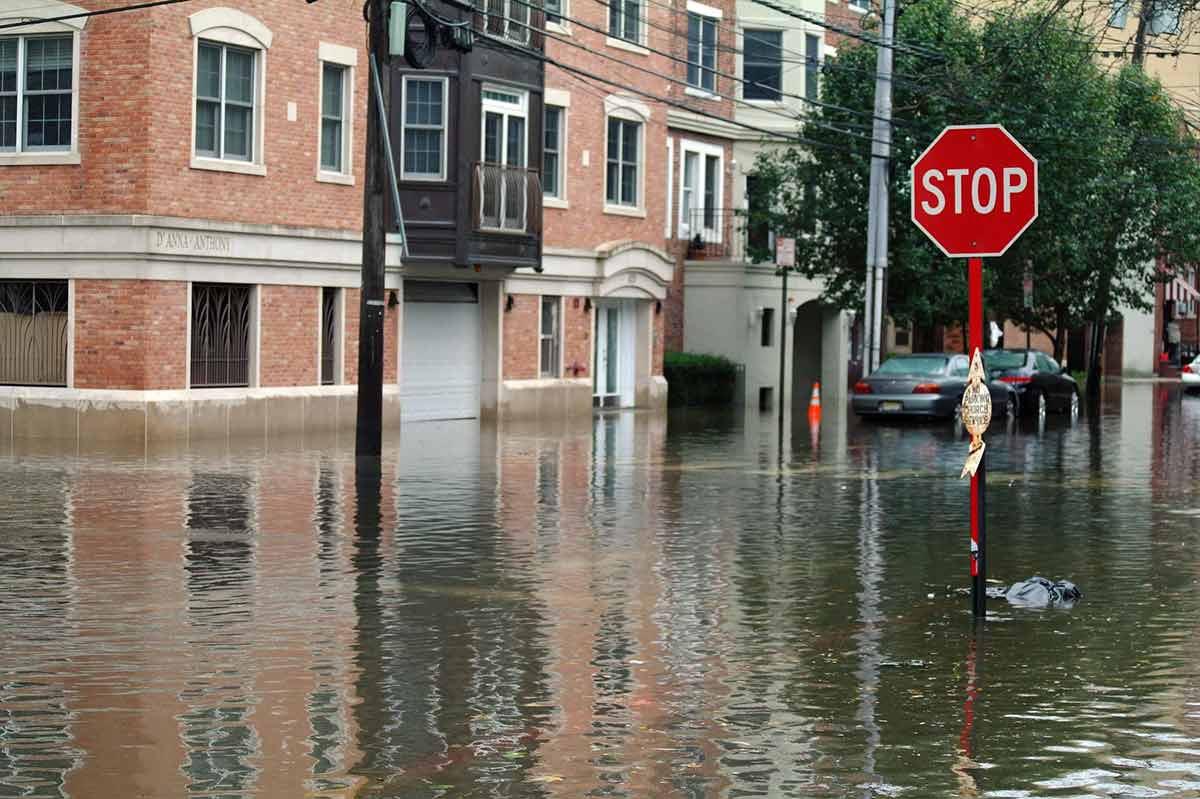Renters comprise around 40 percent of Canadian households. Free of mortgages, renters are often also free of any mandates to buy home or property insurance.
The fact that they are not specifically required to buy insurance, however, doesn't mean that renters don't need any. Too often, renters vastly overestimate what their landlords' insurance will cover. This can leave them vulnerable and devastated if the worst happens.
Here's what every renter needs to know about renters insurance in Ontario and why skipping tenant insurance is never a good idea.
What Types of Things Does Tenant Insurance Cover?
One of the key reasons many renters fail to purchase apartment insurance is that they don't realize just how much the average policy covers. What does tenant insurance cover that's so important? Standard policies provide four essential types of coverage:
- Personal property
- Personal liability
- Identity theft
- Additional living expenses
Personal Property
Personal property coverage encompasses almost everything renters own, from clothing to kitchenware to furniture and collectibles. This is critical because contrary to popular belief, landlord insurance does not cover renters' belongings in the event of a disaster.
Moreover, tenants insurance covers renters' belongings even when they are not in the apartment. For example, if a policyholder's things are stolen from a vehicle or a hotel room while they are on vacation, the policy will still cover their replacements. In many cases, it will also cover other people's belongings present in the apartment, such as a friend's belongings while they're visiting or that one has been borrowed.
A standard policy may even cover things you would never expect, such as food that is lost or spoiled in the event of a power outage or equipment failure.
Some renters feel that they do not need this coverage since they have nothing of any particular value. This is an inaccurate assumption. While no single item may be expensive, together most renters' belongings cost far more than the average household could afford to replace out of pocket all at once.
Personal Liability
Since tenant insurance in Ontario functions as home insurance for tenants, it also covers liability. Liability can come into play when someone is injured while in your apartment or when you cause accidental damage to someone else's property.
Again, many renters assume that since their landlord technically owns the apartment, their insurance will cover injuries. This is not the case. Landlord insurance covers incidents that take place in public areas of the building or complex such as:
- Parking lots
- Hallways
- Common rooms
Renters are responsible for any incidents that take place in their apartments. Even if the incident itself is an accident and in no way their fault, the injured party's insurer will insist on holding the renter legally liable. This means that you would be responsible for, as an example, the cost of physiotherapy, crutches or braces.
Tenant liability insurance protects renters from having to pay those enormous costs out of pocket.
Additional Living Expenses
Another key cost covered by renter insurance is additional living expenses. This includes all of the expenses a renter might face if their apartment became unlivable for any period of time. Common examples include:
Consistently eating out can cost three times as much as a household would spend on groceries for the same period of time. Taken together with hotel prices and other costs, this can break the bank for renters forced out of their homes while repairs are made after a calamity.
Critically, although many renters mistakenly believe that landlords must pay these costs, that is not the case. Regardless of why renters might be driven from their homes or for how long, by law, it is never the landlord's responsibility to pay the renters' associated costs and no landlord's insurance policy will provide funds to that end. Rental insurance does cover those costs, protecting renters physically and financially and helping them get back on their feet.
Identity Theft
Perhaps the biggest surprise for many renters is that tenant insurance also pays out in the event that they are a victim of identity theft. A standard policy will:
- Protect renters from fraudulent credit card transactions
- Help victims restore their identity
- Cover other costs associated with resolving the situation
Considering that more than half of Canadian internet users will experience at least one cybersecurity incident, this coverage has never been more necessary than it is today.
What Types of Things Does Tenant Insurance Not Cover?
While tenant insurance covers a broad range of potential accidents, disasters, and losses, there are a few things it specifically does not cover.
- Damages caused by the tenant
- Water damage
- Business products and equipment
- High-value items
- Certain types of disasters
Damages Caused by the Tenant
No form of insurance covers policyholders who intentionally inflict damage on their property or the property of another person. Renters insurance is no exception. In most cases, this extends to policyholders' families and pets as well.
It is renters' responsibility to manage their households in appropriate ways to prevent careless or intentional damage. Most unintentional damage or damage beyond your control will be covered, however.
Water Damage
Like homeowners' policies, renters' policies do not typically cover water damage. Renters can purchase additional coverage or riders that add water damage coverage to their policies, however. Given how extensive and expensive water damage can be, this is highly recommended.
Business Products and Equipment
Rental insurance does not cover business-related expenses. Renters who own or operate small businesses out of their homes or who store business-related property at home need separate policies or riders to cover products or equipment associated with their work.
High-Value Items
All standard insurance policies cap coverage by category. Renters who have particularly expensive items or many items in the same category may not have enough coverage to fully recoup their costs after a disaster.
Experts recommend that renters, like homeowners:
- Take an inventory of their belongings
- Have the value of expensive items assessed and documented
- Purchase additional coverage where necessary to ensure costly or precious belongings are fully covered
Certain Types of Disasters
Floods, earthquakes, volcanoes and other uncommon or especially devastating disasters tend not to be included in standard apartment insurance policies. Renters should review their policies carefully to ensure they understand what is and is not covered. As with other policy categories, renters can purchase supplemental riders and coverage if necessary to give themselves comprehensive coverage and peace of mind.
Is Tenant Insurance Mandatory In Ontario?
Put simply, there is no law requiring renters to carry insurance in Ontario or any other Canadian province. Renters are free to put their belongings, families, and finances at risk by not carrying coverage if they so choose.
However, given the low cost of renters insurance and the abundant protections it provides, choosing not to carry insurance is never in a renter's best interest.
Can My Landlord Insist I Have Tenant Insurance?
Landlords can insist that renters carry insurance as a condition of the lease. Even if they do not, carrying insurance is the best choice for any renter.
What Factors Can Impact My Rates?
Apartment insurance is similar to other forms of insurance in that rates can be influenced by:
- Policyholders' credit scores
- The belongings covered
- Geographic location
- Policyholders' claims history
Policyholders with high credit scores and a clean claims history can expect the best rates. Renters with a history of numerous or expensive claims may see higher rates, as can policyholders with particularly expensive belongings for which they need to purchase additional coverage.
What Does Tenant Insurance Cost?
One of the key concerns among renters upon finding out that they need or should carry insurance is "how much is tenant insurance?" Many renters are pleasantly surprised to learn that the average cost of renters insurance can be as low as $20 per month.
Tenant insurance in Ontario is incredibly affordable, especially when compared to homeowners insurance which offers similar types of coverage. This comparative affordability is due in part to the fact that renters insurance does not have to cover most of the high-cost fixtures and structures that make homeowners coverage so expensive.
Tenants can keep costs down while securing the right coverage by examining in detail how much coverage they need prior to purchasing a policy.
Payment Options
Renters can often choose how they would like to pay for their policies. They can pay:
- Monthly
- Quarterly
- Bi-annually
- Annually
This gives renters the flexibility to change their policies and coverage as their needs, risks, or belongings change.
Does Renters Insurance Go up After a Claim Has Been Made?
In most cases, the cost of renters insurance is fairly stable. Filing a claim does not necessarily mean that policyholders will see their rates go up.
Choosing Renters Insurance in Ontario
Purchasing renters insurance in Ontario insulates tenants from crippling costs and losses. It protects policyholders and their families from the most common forms of disaster and liability and brings peace of mind. Learn more about choosing the right insurance products for your needs on our blog today.








